How to Prepare Your Child For Baby #2
Congratulations on baby number two (or three, or four)! If you’re anything like me, this time will be quite different because you’ve already gone through pregnancy, childbirth, and the newborn stage before. However, you’ll probably find that you and the baby aren’t always the first thing on your mind because you have another little one at home too. Adding a baby to the family will be a huge change for your first child and can be quite the adjustment. Here are a few tips we used to help our toddler transition from being an only child to becoming a big brother when we brought his sister home a few months ago.
Skip the big changes: If it’s almost time to potty train or move into a toddler bed, do these activities months before the baby or months after the new baby arrives. Your first child’s world is going to be turned upside down already, and with regression likely when the new baby comes, you don’t want to be dealing with bed wetting or midnight visits from your toddler. Right before our baby arrived is when we were planning on getting rid of bottles as part of the nap and bedtime routine for our 18 month old, but decided to hold off for a few more months (and I’m SO glad we did).
Talk about the baby often: Before the baby arrives, talk about the baby often. I worked hard to start referring to my toddler as a “big boy” months before the baby arrived and would often tell him about the baby inside mommy’s belly. We talked about when he used to be a baby, but how he grew up into such a big and helpful boy. You can build excitement about the baby’s arrival by letting your oldest pick out things for the nursery, choose clothes for the baby, or color pictures he thinks the baby might like.
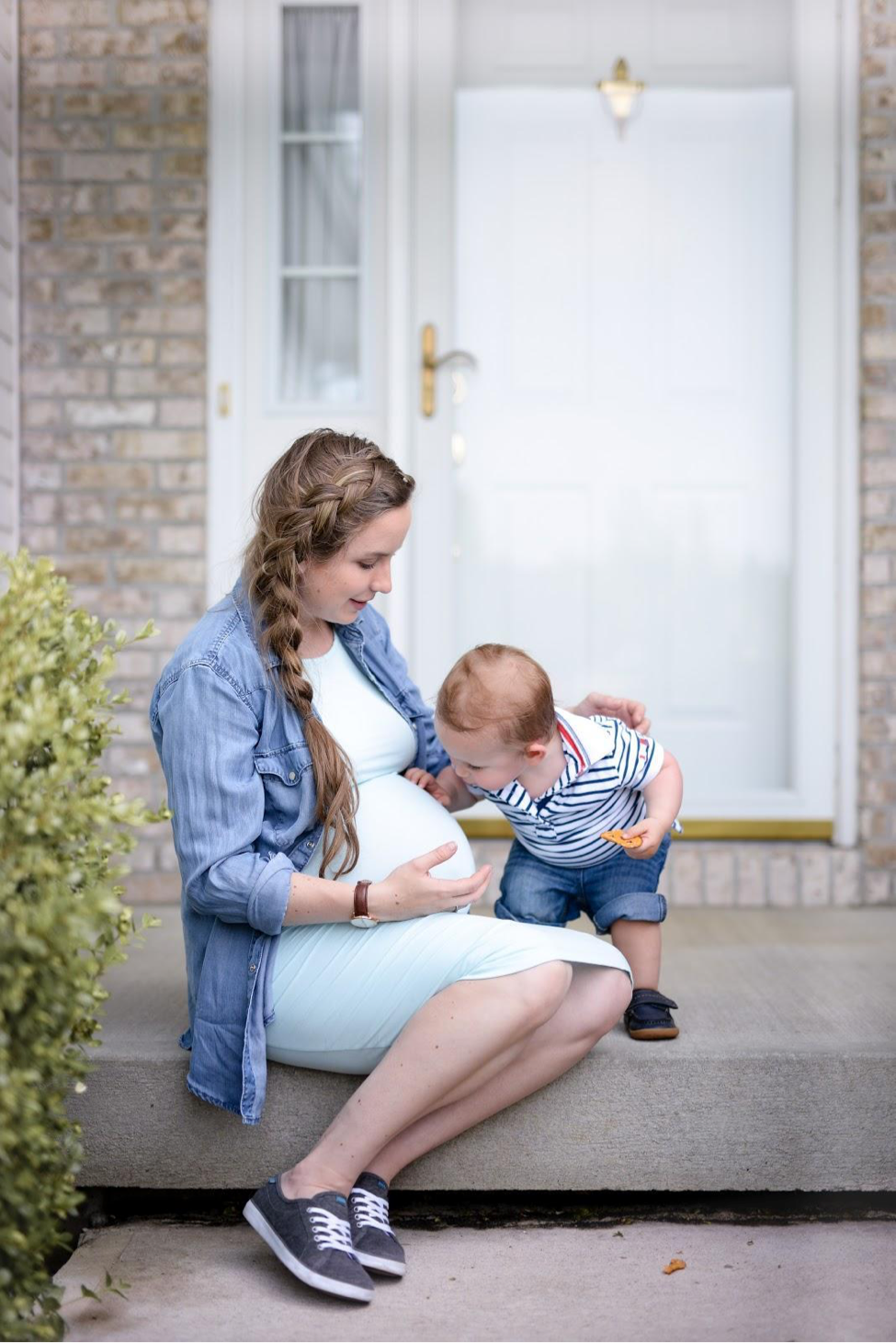
Stash away some new toys: Wrap up a few new toys for your first born so he has something to be excited about, and, more importantly, is likely to play with independently. We had a big box of cars (hand-me-downs from a friend but you could pick them up new or get a few things at your local “Once Upon a Child”), and for the first week or two with the new baby, we’d bring out one new car each day. The new cars guaranteed me a few minutes of happy, independent play each morning and were a bright spot in our toddler’s day.
Encourage independence: Pregnancy does a great job at helping the older child prepare for childbirth because it is far more difficult for Mom to be on the floor playing with a child at all times while 8 months pregnant. We started actively encouraging independence, specifically independent play, with our toddler so he wasn’t reliant on Mom for all his entertainment. I would suggest that he play with specific toys while I did things like clean the kitchen, and if I ever found him reading books alone, I would let him have the time by himself until he requested I play with him again. Before the baby arrives is a good time to have your oldest get used to doing more things for himself, whether it be playing, cleaning up, or just generally occupying himself. If he is used to Mom asking him to try things on his own before the baby arrives, he is less likely to get frustrated when Mom can’t get the ball he’s asking for in the middle of a nursing session.
Get the sibling involved: Depending on the age of your oldest, his ability to be involved will vary. With our 18 month old, we encouraged him to help by bringing me blankets, pacifiers, or diapers. When he successfully completed the request, I was always sure to thank him specifically by saying something like, “Thank you for being so helpful by bringing Mom that diaper” or “Thank you for being so helpful and bringing Adelaide her blanket. Look how much she likes it.” This praise helps your child feel needed and valued (and I found it is a great way to occupy or distract him while your hands are occupied).
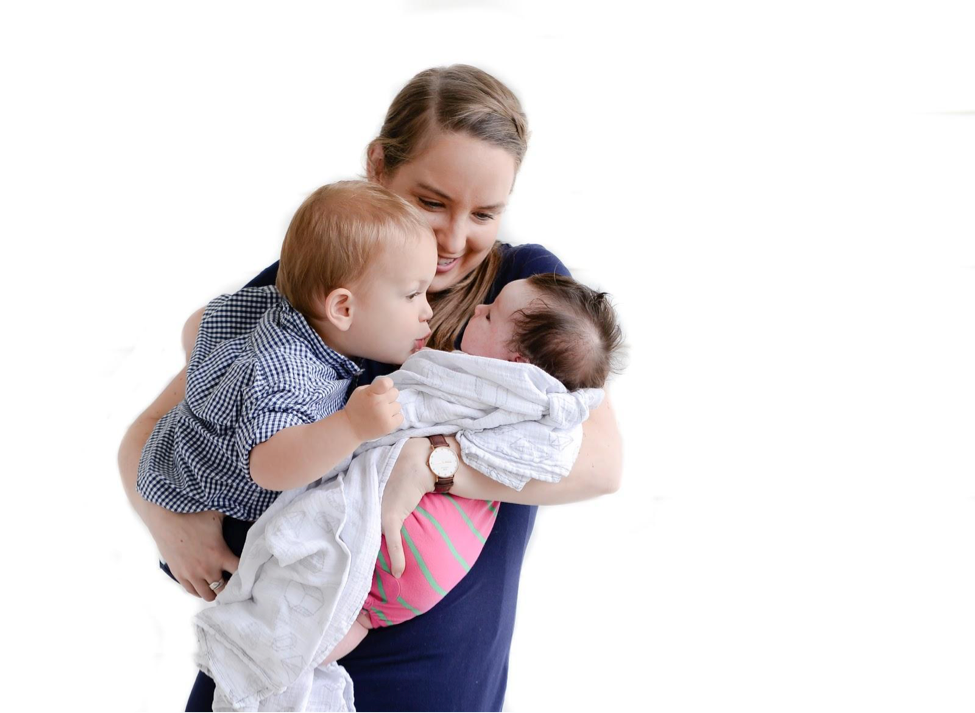
Handle feeding times like a pro: The biggest struggle for the first child tends to be while the baby needs to eat. In part, this is because it happens so frequently, but also because it means Mom is totally occupied. Having a few toys set up by your feeding station is a great idea and talking to your oldest while you feed the baby also helps. Additionally, we gave our toddler his own baby doll when we came home from the hospital. While I feed our baby, I’ll encourage him to get out his baby and feed her. He loves crawling up on the couch next to me and being “just like Mom.”
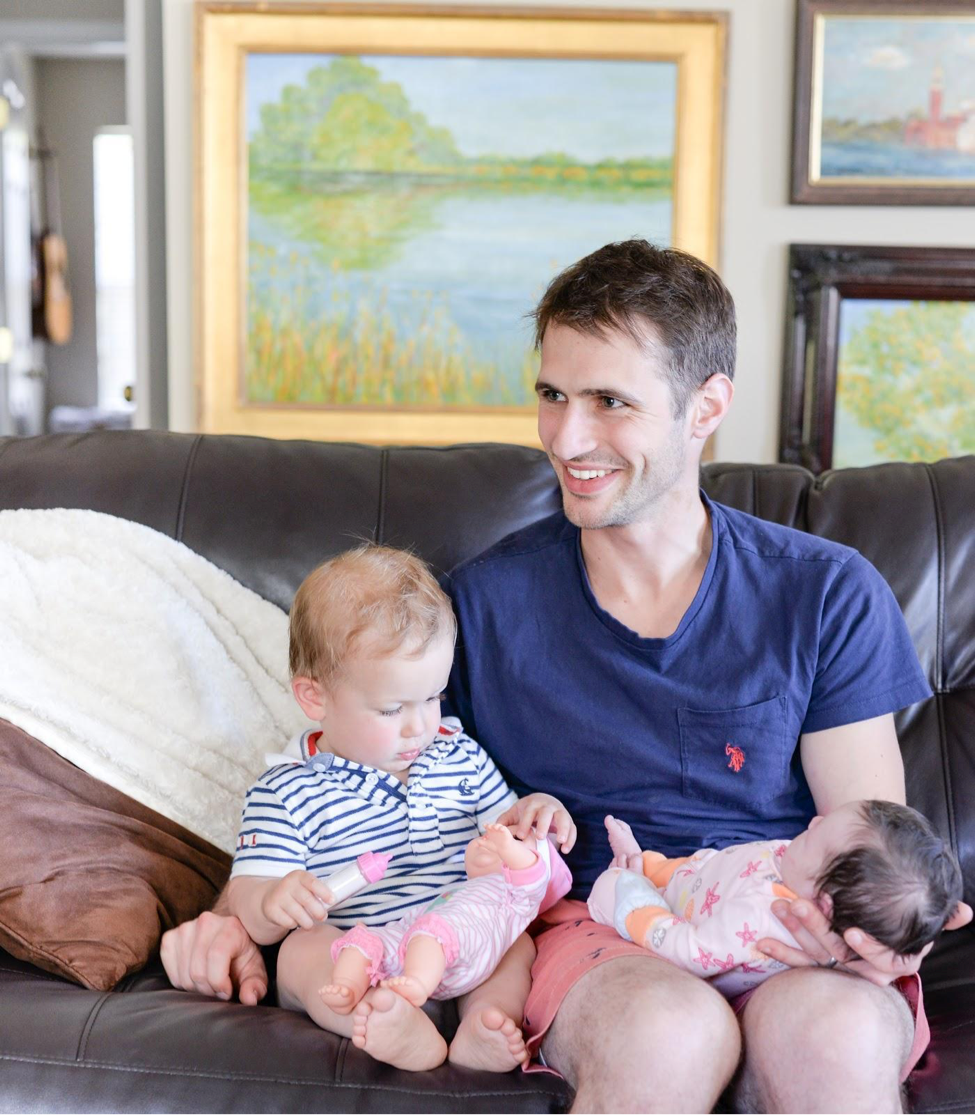
Maintain the routine: Toddlers and young kids thrive on routines, especially our 18 month old. Before I headed to the hospital, I was sure to have his typical day typed up and printed for whoever was going to be watching him, paying particular detail to our bedtime routine. It allowed him to have a bit of stability during the few days Mom was away and made for a happier and better rested toddler. Keeping up the routine once we all came home from the hospital was important, too. I worked hard to protect my toddler’s nap and bedtime routine and savor those few minutes each day where it was just the two of us.
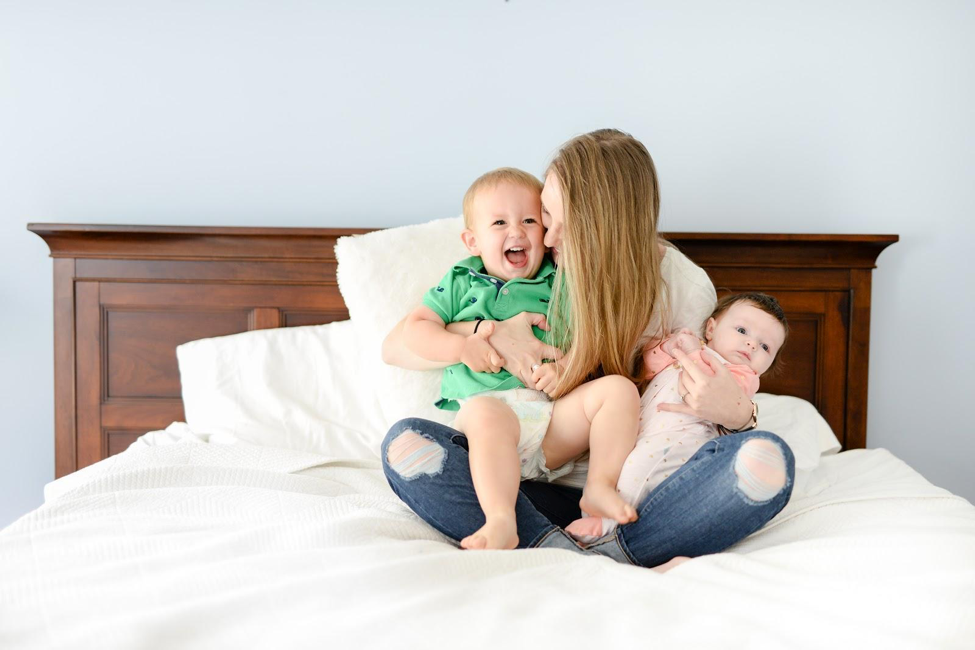
Be understanding: It is natural for there to be some regression, some feelings of jealousy, and some acting out. Remember that this is a huge change for your little one and that he’s often coping with the changes the best way he knows how. I’ve been working on naming my toddler’s feelings when he starts expressing them, letting him know it is okay to be sad when mommy can’t help him right away, but that I’ll be there in a minute.
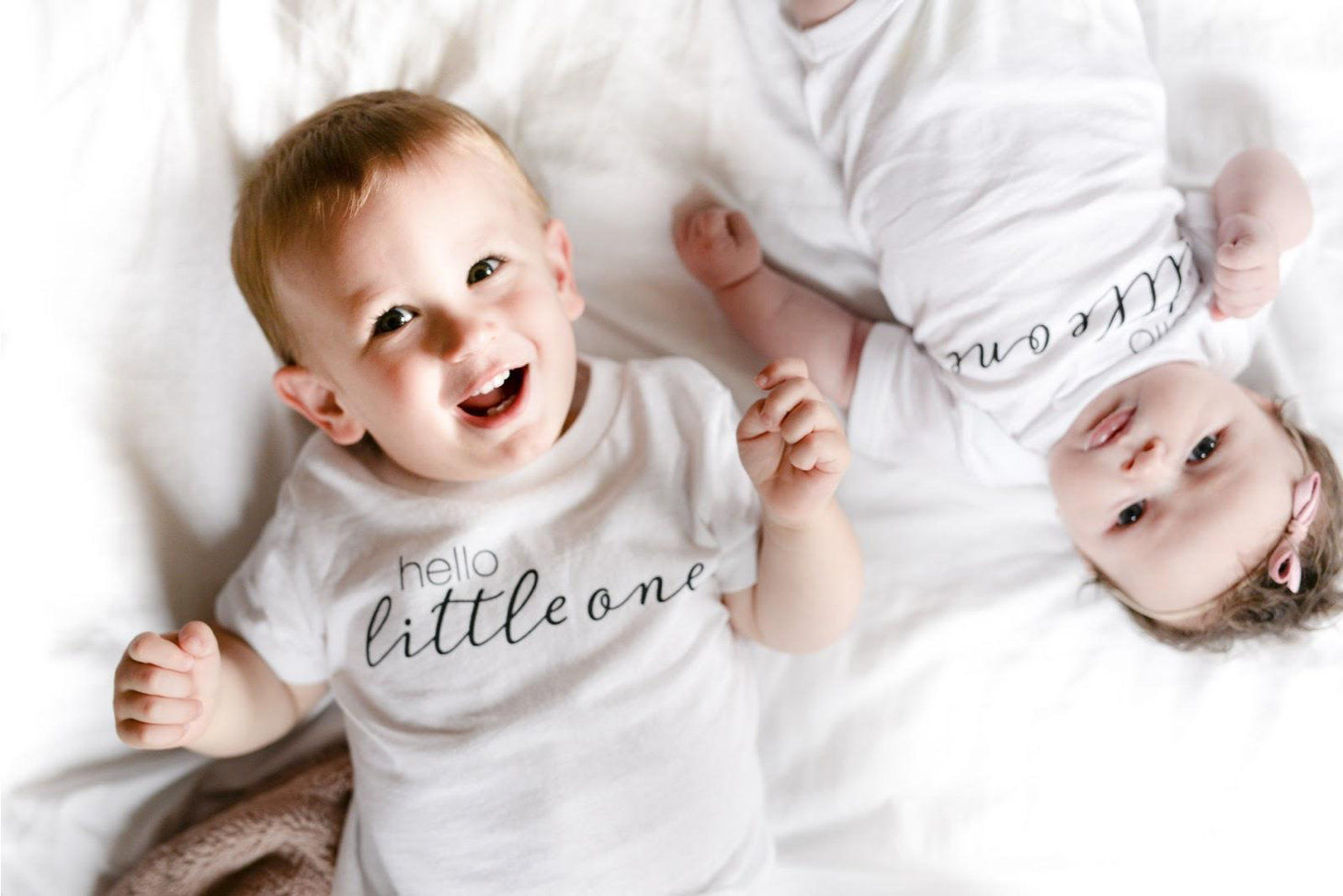
I hope these are useful to you in this transition and would love to hear if you’ve tried something else that has been helpful!



























































Comments